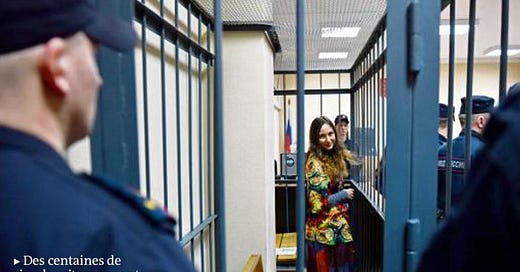TWTW: The World This Week / Episode #69
Ukraine / Russia: spirals of repression….Israel, forget outside pressure?....a climate pact of sorts.…elections round the corner….and Singapore cartoonist Heng has Zelensky begging for coins.
This weekly feature for Andelman Unleashed, continues on its mission to explore how the media of other nations are reporting and commenting on the United States, and how they are viewing the rest of the world.
How others see the World
Just what might be in store for Ukraine thanks to the double failure of Congress and the European Union to provide the res…
Keep reading with a 7-day free trial
Subscribe to Andelman Unleashed to keep reading this post and get 7 days of free access to the full post archives.



